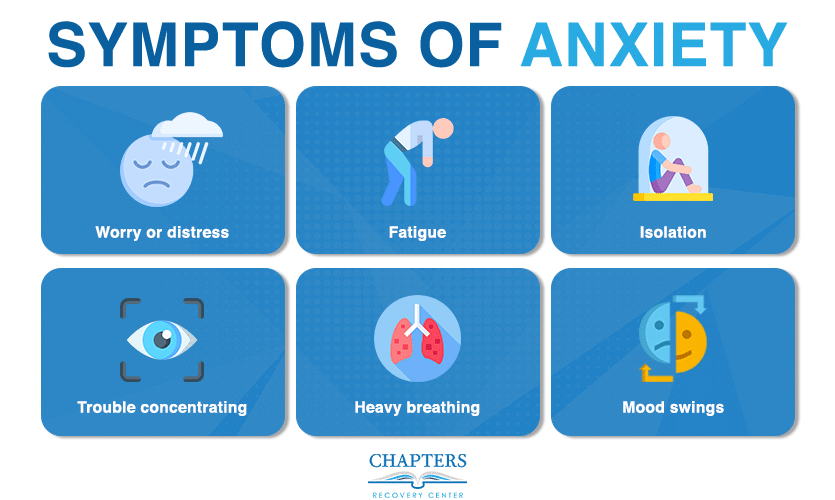Narcissism is a personality feature that can be part of narcissistic personality disorder (NPD) in some people, and alcoholism is a substance use disorder (SUD). Still, the two are linked and share similar traits. Narcissists can become alcoholics, and alcoholics can be especially narcissistic when they drink. However, alcoholics are not always narcissists.
An alcoholic narcissist, or someone with narcissistic personality disorder, is one of many conditions that can co-occur with alcoholism, or alcohol use disorder (AUD). But, AUD can cause some people to develop narcissistic characteristics. They may become arrogant, defensive, and self-centered.
Alternatively, having a narcissistic personality disorder can make a person more susceptible to the abuse of alcohol. An alcoholic narcissist has an excessively grand view of themself, or they’re using alcohol to help cope with an underlying shame.
What’s Narcissism?
Narcissism is intense self-involvement to the extent that it makes the person overlook the needs of people around them. Although everybody may show narcissistic behavior occasionally, true narcissists often disregard other people and their feelings. In addition, they don’t seem to understand the effect their behavior has on other people.
It should be noted that narcissism is a trait, but can also be part of a personality disorder. Not everyone who is a narcissist has NPD. Narcissism is a spectrum disorder like autism. People who are at the highest end of the spectrum are the people who are classified as NPD. Others with narcissistic traits may fit on the lower end of the narcissistic spectrum.
Two Types of Narcissism
There are two types of narcissism that narcissist behavior may fall under. They can have common traits but arise from different experiences in childhood. These two types also direct the different ways people will behave in relationships. The two types are:
Grandiose Narcissism
Individuals with this type were probably treated as if they were superior to others during childhood. And these expectations follow them into adulthood. They tend to brag and be elitist. They’re also frequently aggressive, dominate, and exaggerate their importance.
Vulnerable Narcissism
This type is usually the result of childhood abuse or neglect. People with this type are much more sensitive, and narcissistic behavior helps protect them from feelings of being inadequate. Although they go between feeling superior and inferior to others, they feel offended or anxious when other people don’t treat them as if they’re special.
What Causes of NPD?
Besides certain generalizations, it’s not known exactly what causes narcissistic personality disorder. As with personality development and other mental health disorders, the cause of NPD is complex. It may also be linked to:
- Environment–Mismatches in parent-child relationships where there is either extreme adoration or excessive criticism that is poorly adjusted to the child’s experience.
- Genetics–Inherited characteristics.
- Neurobiology–the connection between the brain, thinking, and behavior.
How Does Alcohol Affect a Narcissist?
Both types of pathological narcissism (abnormal efforts to regulate the self) are also linked to alcoholism. In a study of college students, it was found that grandiose narcissism appears to be a positive indicator of alcohol misuse. In grandiose narcissists, alcohol use enhances their grandiosity. Grandiose alcoholic narcissists will deny that they have a drinking problem. They insist that their drinking is normal and may even be proud of it, especially if it makes them seem special.
In addition, vulnerable narcissism is also a risk factor for alcohol-related problems in the future. Vulnerable alcoholic narcissists are usually trying to hide an underlying shame and use alcohol to cope. This makes them susceptible to addiction. Unlike grandiose narcissists, they are likely to admit that they have a problem with alcohol.
What Are Some Signs of AUD?
Alcoholism is used to describe the chemical and psychological dependence on alcohol that a person may have. It’s a progressive illness, meaning it gets worse over time. The Diagnostic and Statistical Manual of Mental Disorders, 5th Edition (DSM-5) uses “alcohol use disorder” as the official term for alcoholism. An individual is diagnosed with AUD if they meet at least 2 of 11 criteria of DSM-5.
- You’re drinking more than intended
- You can’t stop drinking once started
- You have an excessive craving for alcohol
- You’re spending too much time drinking
- Drinking is interfering with family, work, or school
- You have developed a tolerance for alcohol
- You continue drinking even though it causes you trouble
- You continue to drink even though it is causing depression, anxiety, and other health problems
- You avoid other activities to drink
- You experience withdrawal symptoms when you don’t drink
Depending on the number of criteria met, the severity of AUD is classified as:
- Mild: 2 to 3 symptoms
- Moderate: 4 to 5 symptoms
- Severe: 6 or more symptoms
10 Ways Narcissists and Alcoholics are Similar
They are driven by cravings
AUD involves cravings, tolerance, and withdrawal.
Narcissists crave attention and like the feeling of superiority.
They are self-centered and feel entitled
Narcissists think relationships are all about them.
Alcoholics believe that drinking is the most important thing, even at the expense of their loved ones needs.
They blame other people
Narcissists almost never apologize for their mistakes. Admitting mistakes is a weakness that they hate. They also tend to blame other people for making them do the things they do.
Alcoholics will have lots of excuses for their drinking. However, it’s usually not their fault.
They will avoid or hide their shame
Narcissists avoid shame by shaming other people for things they did wrong.
Alcoholics avoid and hide underlying shame by drinking.
They exploit people and situations
Narcissists believe they can do whatever they want at other people’s expense.
Alcoholics are opportunistic and resourceful at getting their drinks.
They are defensive
Alcoholics and narcissists will both become defensive once they are confronted about it. They might withdraw or be angry. They also might attack people who point out what they’re trying to hide or deny.
They are dishonest
Narcissists lie to promote their image and avoid being criticized.
Alcoholics will claim that they can stop drinking whenever they want. They’ll also deny when they had a drink or that their drinking has negative consequences.
They refuse to self-reflect.
Narcissists don’t like self-reflection. This means that they don’t like to seriously think about their behaviors. Neither do alcoholics. They avoid reflecting on their insecurities and lack of self-esteem by drinking.
They are manipulative and arrogant.
Narcissists often show emotions that are designed to promote a positive image of themselves.
Alcoholics might cry about the costs of their addiction, but it doesn’t mean anything because they still won’t stop drinking.
Their behavior is destructive.
Narcissists reveal destructive behavior because of a lack of empathy and genuine emotions.
Alcohol addiction affects behavior and the way other people are treated. This is why it’s hard for narcissists and alcoholics to maintain relationships.
What Are The Differences?
Even though narcissism and alcoholism share similarities, the two are still different and separate conditions. For example, narcissists and alcoholics differ in terms of:
- Behavior displayed: Many times, alcoholics aren’t narcissistic when sober and may actually feel empathy. The behavior of a narcissist is constant whether they use alcohol or not.
- Owning up to mistakes: Sometimes alcoholics don’t recognize a mistake because they don’t remember it. Narcissists will continually refuse to admit a mistake because they don’t like criticism.
- Recognizing a need for change: Someone struggling with AUD might realize they need to change, but a narcissist will always be unwilling to admit they need to change.
- Impressions of other people: People close to an alcoholic might notice behavior changes. People close to narcissists might feel like the person’s behavior is never changing.
Is AUD a Mental Illness?
Mental illnesses are also called mental health disorders. They include an extensive range of disorders that affect your behavior, thinking, and mood. AUD is recognized as a disorder that causes both physical and psychological symptoms. The psychological symptoms are serious enough to classify alcohol addiction as a mental illness.
Common mental health disorders associated with alcoholism include:
Depression
Depression causes a person to have a consistently negative outlook and affects a person’s thoughts and actions. Alcohol is sometimes used as a quick fix but can actually make symptoms worse.
Anxiety Disorders
Generalized anxiety disorder, post-traumatic stress disorder, and panic disorder are all linked to an increased risk of alcoholism. Obsessive-compulsive disorder (OCD) is one of the most common types of anxiety disorder.
Bipolar Disorders
Often described as a manic-depressive illness, this condition involves erratic mood swings that go from extreme highs to severe lows.
Post-Traumatic Stress Disorder (PTSD)
PTSD is a psychiatric disorder that affects people who have witnessed or experienced traumatic events.
Personality Disorders
A personality disorder is a type of mental illness where the person has a strict and unhealthy pattern of thinking, behaving, and functioning. People treated for addiction are more likely to have a personality disorder.
What’s a Dual Diagnosis?
A dual diagnosis (or co-occurring disorder) is when one person has a mental health disorder along with a drug or alcohol abuse problem. There is a strong association between SUDs and other mental health disorders. About 50% of people with one disorder will develop at least one more co-occurring mental health problem in their lifetime.
The co-occurring conditions may begin at the same time and overlap. Or one may start before or after the other. In any case, the two co-occurring disorders can interact in a manner that makes the severity of both of them worse. NPD is one of those conditions that can co-occur with alcoholism.
Treating Co-Occurring Disorders
Diagnosing and treating co-occurring disorders can be problematic. This is particularly true with NPD and alcoholism which have symptoms that overlap and often affect each other. As an example, AUD can make people be defensive of their addiction. This is also a trait of narcissistic personality disorder. This makes it hard to tell if the root problem is narcissism or alcoholism. This also makes it difficult to recommend the correct treatment.
An individual with a mental health condition and a SUD must have both conditions treated at the same time. Many of the treatment options for both may include:
- Rehabilitation
- Medications
- Support groups-for emotional and social support
- Behavioral therapies
Combined treatment for SUDs and mental illness has proved to be consistently superior compared to separate treatments for each condition. Treating only one (NPD or AUD) increases the chances of relapse.
CBT
Treating SUDs and mental illnesses frequently involve using cognitive-behavioral therapy (CBT). CBT is an evidence-based therapy that teaches methods to improve interpersonal communication and coping skills. This is done by helping the individual recognize how their faulty thinking patterns affect their behaviors.
Is an Alcoholic Narcissist More Likely to Relapse?
There doesn’t appear to be a significant relationship between narcissistic personality disorder and substance use relapses. But, when people with both AUD and NPD go back to drinking, they will probably hide or deny it. They may also feel like they failed and blame someone else for their failure. This is why simultaneous treatment of both disorders is essential. If only one is treated, the chances of relapse increase.
Do You Know an Alcoholic Narcissist?
Or maybe you know someone with alcohol use disorder. Is it you? If you or a loved one needs help for a substance use disorder and a co-occurring mental health disorder, you can find help for both at Chapters Recovery Center. We can provide a medically supervised detox (a necessity for alcohol withdrawal) and a range of outpatient programs, beginning with the most intensive partial hospitalization program (PHP). In addition, we have individual programs for women and men. You owe it to yourself and your loved ones to reach out for help. This is too important to try to do it yourself.







